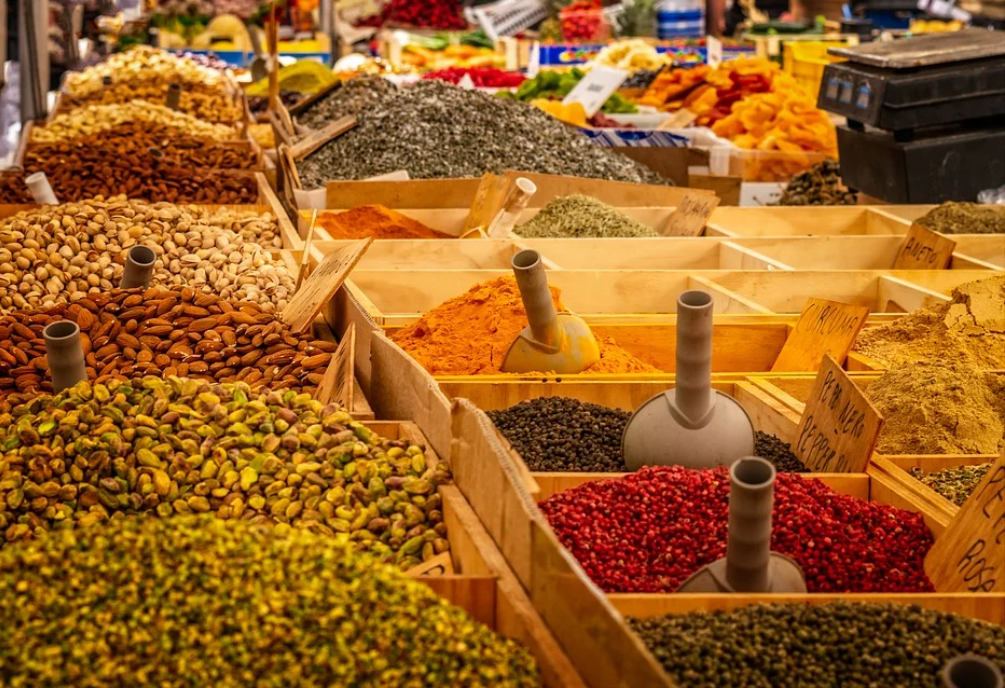Author: Julia Sun
"Food is the first priority for the people", and food has an irreplaceable basic position in the national economy. Food waste is a global problem. "World Food Day" and "International Food Loss and Waste Awareness Day" are both designed to urge countries to take action to increase food production and reduce food loss and waste.
Total words2535About7minutes
From September 9th to 11th this year, the first International Food Loss Reduction Conference was hosted in Jinan. The conference released the Jinan Initiative of the International Conference on Food Loss Reduction, calling on the international community to work together to reduce food loss and waste to enhance global food security.
"Food is the first priority for the people." Food is related to the national economy and people's livelihood and has an irreplaceable basic position in the national economy. The Food and Agriculture Organization of the United Nations (FAO) designates October 16 every year as "World Food Day" to urge countries to take action to increase food production, rationally distribute food, and reduce hunger and malnutrition. In 2020, the United Nations set September 29 as the "International Food Loss and Waste Awareness Day" to promote the international community to reduce food loss and waste.
What are food loss and food waste?
According to statistics from the Food and Agriculture Organization of the United Nations, food loss or waste accounts for approximately one-third of global food production. Food loss refers to the loss and spoilage of food during production, harvesting, processing, and distribution, resulting in a decrease in food quality and value. In developing countries, 40% of food losses occur during the harvest or processing stages. In developed countries, 40% of food losses occur at the consumer or retail stage, including food left unsold in stores, eaten at home or in restaurants and discarded. This phenomenon is called food waste.

Is food waste a problem only in developed countries?
The answer is NO. Food waste is a global problem. The 2021 Food Waste Index Report, jointly released by the United Nations Environment Program (UNEP) and the British NGO Waste Resource Action Program (WRAP), found that there is a large amount of food waste in every country. This discovery overturns the perception that food waste only exists in developed countries. The report found that the highest amounts of food waste per household per capita in the world are in low- and middle-income countries. The annual per capita food waste per household in low-middle-income countries, upper-middle-income countries and high-income countries is 91kg, 76kg and 79kg respectively. Data are currently not available for low-income countries.
The catering industry is an important source of food waste. The per capita food waste in the catering industry is 93 grams per meal per year, with a waste rate of 12%. The waste rate of large gatherings reaches 38%, and the waste of box lunches in primary and secondary schools is as high as one-third of the food supply. Survey results show that the amount of food waste in my country's catering industry from 2013 to 2015 was approximately 17 million to 18 million tons per year, which is equivalent to the annual rations of 30 million to 50 million people.
How many people around the world are still hungry?
According to the 2019 World Food Security and Health Report of the Food and Agriculture Organization of the United Nations, more than 820 million people around the world are forced to endure hunger every day, which means one in every nine people suffers from hunger every day. Statistics from Mercy Corps show that approximately 9 million people die from hunger every year. This is more than the number of deaths from AIDS, malaria and tuberculosis combined, a number that has continued to rise over the past three years. Approximately 2 billion people worldwide face severe food insecurity and lack access to safe, nutritious and adequate food. The 2020 Global Food Crisis Report pointed out that in 2019, 135 million people in 55 countries and regions faced extreme food insecurity. The COVID-19 epidemic and various natural disasters have caused greater challenges to the global food supply.

What are the indirect harms of wasting food?
Wasting food not only means wasting the food itself, but also means wasting resources related to food production and causing pollution and damage to the environment. If we want to get serious about tackling climate change and protecting nature and biodiversity, businesses, governments and citizens around the world must make efforts to reduce food waste. Food waste is linked to 8-10% of greenhouse gas emissions globally, so if food waste were a country, it would be the third largest emitter of greenhouse gases on Earth.
Which countries are top students in saving food?
France has repeatedly topped the global food sustainability index. The Global Food Sustainability Index regularly assesses the food waste, sustainable agricultural practices, health and nutrition performance of more than 60 countries. According to the latest rankings, French consumers waste 67.2 kilograms of food per person per year. In the United States, Belgium and Canada, this index is 95.1 kilograms, 87.1 kilograms and 78.2 kilograms respectively. In addition, France is the first country in the world to ban supermarkets from throwing away edible goods.
The UK is the first country to be more than halfway towards achieving the Sustainable Development Goal (Target 12.3) to halve food waste by 2030. "Food Loss and Waste: Progress Report 2020" shows that between 2007 and 2018, the level of food waste in the UK fell by 27%. Key to the UK's success is the supermarket and food industry's commitment to food saving. Publicity and education programs aimed at consumers on loving food and eliminating waste also play an important role.

How to effectively eliminate food waste?
In June this year, the Ministerial Conference of the Food and Agriculture Organization of the United Nations approved the Voluntary Code of Conduct for Reducing Food Loss and Waste, which proposed principles, standards and action recommendations to effectively reduce food loss and waste, while promoting a more efficient, inclusive and sustainable building. Sustainable agri-food systems. The Code introduces the measures that central and local governments, food supply chain participants, businesses, farmers' associations, non-governmental organizations, academic and research institutions and other stakeholders in each country should take to reduce food loss and waste.
The United Nations Environment Program has also put forward recommendations to prevent food waste. At the national level, countries should include food waste reduction in the Nationally Determined Contributions of the Paris Agreement, strengthen food security, and reduce household expenditures on food purchases. Preventing food waste should also become a post-epidemic priority. An important part of the recovery strategy; at the regional level, establish a regional food waste working group to help member countries develop food waste benchmarks and food waste reduction strategies to reduce food waste generated in food production, supply and consumption.
For ordinary people, the most direct and effective way to eliminate food waste is to reduce terminal waste. Avoiding buying too much food, storing it correctly, eating out as much as possible or packing leftover meals are all effective ways for ordinary people to reduce food waste.
All rights reserved, please indicate the source when citing.
References
http://www.fao.org/zhc/detail-events/zh/c/889327/
http://www.fao.org/publications/card/en/c/ND409EN/
https://www.devex.com/news/un-report-countries-at-all-income-levels-waste-food-99323
https://www.ifco.com/countries-with-the-least-and-most-food-waste/
https://kknews.cc/agriculture/g3jvnpl.html
Past review
- WFP's Nobel Peace Prize: A Compelling Justification
- Assessing the Quality of Official Development Assistance: Insights from the 2021 QuODA Report
- New Version of the "Foreign Aid Management Measures" Reveals Four Trends in China's Foreign Aid
- Afghanistan: Where Does International Aid Come From and Where Will It Go?
- New Trends in U.S. Development Cooperation Revealed by the 2022 Budget Proposal
- Seven Principles Likely to Influence Germany's Post-Election Development Cooperation Policies

